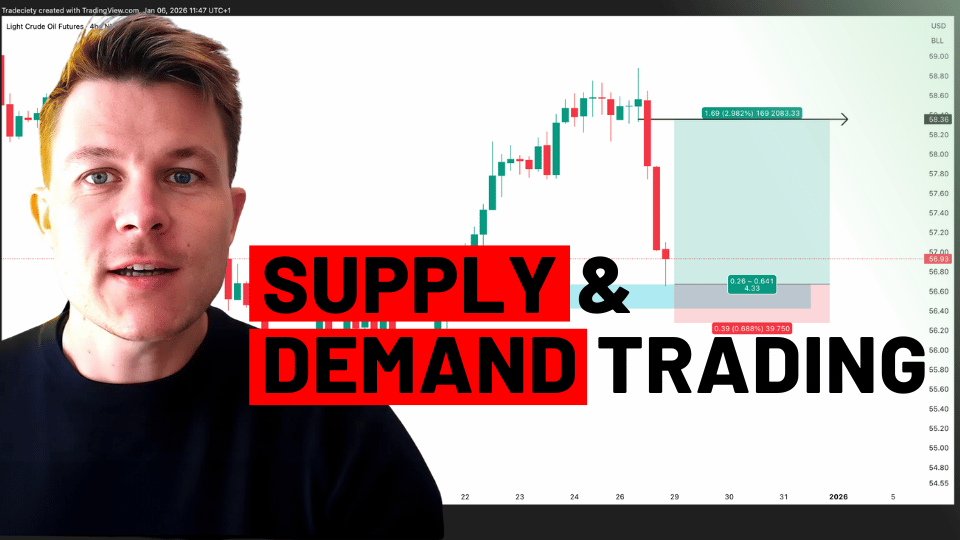Supply and Demand Trading in 2026
We have been trading supply and demand strategies for over ten years, and they have stood the test of time remarkably well. Supply and demand is...

Making excuses is what is holding you back from achieving your full potential – not only in trading, but also in life in general. Traders are experts in coming up with excuses on a daily basis. But making excuses does not only keep you from growing and becoming better, it will also lead to even worse trading and more mistakes as we will see.
On the other hand, a trader who knows how to avoid making excuses can become profitable much faster because he can avoid making the expensive mistakes amateurs regularly make.
We make excuses for a number of reasons and after the following examples it will become obvious why making excuses is so popular.
Fear of failure. No one wants to admit that he is failing. Excuses let failure look like it’s not a big deal and that success is just around the corner.
Fear of embarrassment. It is very embarrassing having to admit that you have done something wrong or even repeated the same mistake again.
Fear of change. Knowing that YOU are the one who is causing all the problems can be challenging because it means that you have to change who you are and how you do things. Nobody likes change.
Fear of responsibility. Traders who use excuses give away the responsibility. They blame unfair markets, disadvantages and other outside circumstances. Not using excuses and taking full responsibility would mean that you are the one who is the cause of all your problems.
Making excuses is just one part of the equation. A person who is constantly making excuses for the previously discussed reasons lives in a dangerous mindset. Excuse-driven traders cannot become profitable because of their beliefs and actions.Making excuses will inevitably lead to the following:
Lack of responsibility and no growth. A trader who blames outside circumstances doesn’t look at how he can overcome his challenges. Even worse, such traders don’t even think that their bad trading performance is their own fault.
Self-limiting beliefs. Traders who are always looking for excuses don’t think that they can do anything to change their status-quo. Once a trader starts believing his own lies, he will not be able to look for ways out.
Massive regrets. Would have, should have and could have are common terms used by traders who are controlled by excuse-driven trading. Regrets and a wrong use of hindsight is a bad place to evaluate your performance from. It always makes things seem much worse than they actually are.
A state of pessimism. Personal growth isn’t possible when you come from a state of pessimism. Making excuses and blaming outside circumstances makes trading and the financial markets look like a bad place. If you always believe that you have a disadvantage or that the markets are rigged, it is impossible to live up to your full potential. Good traders operate from a state of passion and optimism.
Paranoid trader. This ties in with the previous point. Believing that the markets are against you and that trading is an unfair undertaking creates fear. Fear is what holds you back and making good trading decisions becomes impossible.
Locked in your comfort zone. Excuses have the purpose to make everything look better than it actually is. Thus, it signals that there is no need to change anything. As we have said before, change can be intimidating.
Avoid proactive thinking and blocks creativity. Excuse-driven traders only look for the next best trading method, instead of looking at what is really holding them back.
The following excuses show the thoughts and actions of the average trader. Take a good look so that the next time you are about the make a trading decision and justify it with an excuse, you know better.
“Trading is unfair” – The trader who believes that HFT, insider trading and his broker is keeping him from trading success.
“I was busy doing something else” – Traders who don’t follow a strict routine and just flip around time-frames and markets like maniacs often miss profitable trades.
“I don’t have the time with my job” – The trader who is not ready to put in the work. He still sees trading as a hobby and isn’t fully committed.
“My system isn’t good enough.” – After a loss, the trader blames his system instead of looking at himself.
“I was just unlucky” – After a loss, the trader believes that he almost ended up with a winner but he was just unlucky.
“I have no control over what happens” – The helpless trader who believes that he is just a victim and has no control over the outcome.
Traders also use excuses to justify bad trades, staying in losing trades longer than they should and to make bad risk management decisions:
“I don’t want to get out for a loss” – The trader who widens his stop loss because he believes (hopes) that the market is almost ready to turn.
“I will get out for break even when it turns around” – The trader who violates his stop, justifying his lack of discipline by wanting to cut his loss at break-even.
“I will add to this position to get out faster” – The trader who is in a losing position and adds to his trade, hoping to get out faster by averaging down.
“On the daily time-frame it still looks good” – The trader who makes a trading decision on one time-frame and then justifies staying in a losing trade after looking at a different time-frame.
“Just this one time” – The trader who justifies breaking his rules by believing that it will be just this one exception.
“It is against my rules, but it has a good reward-risk ratio” – The trader who justifies breaking his rules by choosing a potentially large reward.

We have been trading supply and demand strategies for over ten years, and they have stood the test of time remarkably well. Supply and demand is...

3 min read
Choosing the right trading journal is essential for traders wanting to analyze performance, refine strategies, and improve consistency. In this...

3 min read
“95% of all traders fail” is the most commonly used trading related statistic around the internet. But no research paper exists that proves this...